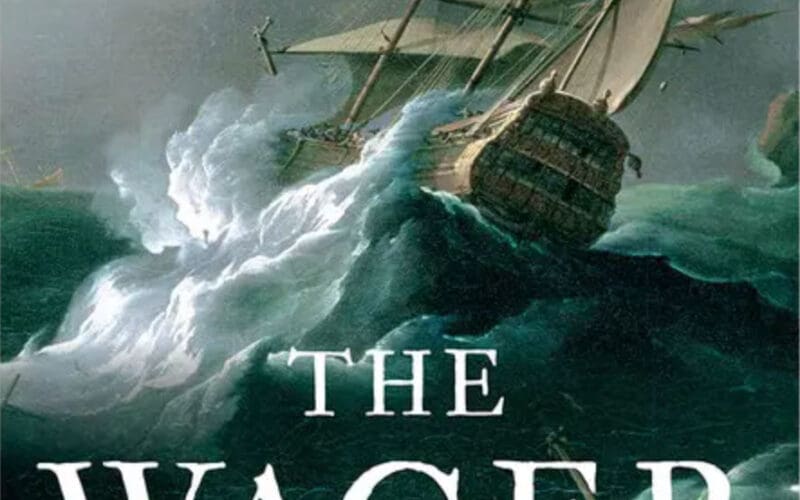 The Wager: A Tale of Shipwreck, Mutiny and Murder
The Wager: A Tale of Shipwreck, Mutiny and Murder
by David Grann
Doubleday; $20.98
What is it about these terrible tales of suffering and privation that makes them so fascinating even 280 years after the fact? I’ll tell you: it’s the repeated mistakes made by military planners and leaders who rely on hope as a strategy; that despite knowledge gained from previous failures, somehow this one will be successful (e.g. press gangs are never a good way to obtain crew).
It is a tale of extremes and contradictions: one of Britain’s greatest naval victories and failures occurred on the same mission. Men who bravely surrender their lives for fellow crew and others so selfish that they steal food at night.
The Wager of this book is not a bet, but a doomed warship. In 1741 the Admiralty secretly dispatches it with a fleet of six ships for the purpose of, “taking, sinking, burning, or otherwise destroying” Spanish ships and weakening their holdings along the Pacific coast of South America. But by the time HMS Wager and its rookie captain David Cheap round the redoubtable Cape Horn they are clearly in trouble. They have become separated from the fleet, are low on supplies, suffer from scurvy, and the ship is disintegrating. When they crash onto the rocks in the appropriately named Gulf of Pain, it’s almost a relief: At least they won’t all drown.
On their little wind-swept isle there is no food and no chance of rescue. Cheap is a stubborn man, obdurate in his adherence to the mission, never wavering in his intent to attack Spanish ships regardless of the human cost. Even after the wreck, which the crew blames squarely on Cheap, he advocates a half-baked plan to steal a man-of-war and rejoin Commander Anson. Despite efforts to maintain discipline things quickly go south, the crew splinters into various factions, steals food and liquor, then mutinies, leaving Cheap and a few loyalists on the island to their fate. With a refurbished craft made from the bones of the ship, the mutineers set off for Brazil and are treated to a hero’s welcome in London. But to their dismay the story is far from over.
David Grann, best known for his nonfiction book Killers of the Flower Moon, is a master of research and storytelling, drawing heavily on source material from the journals of the crew, even traveling to Wager Island in Chile to get a better feel for what they experienced. As the accounts of what happened after the wreck conflicted wildly, Grann wisely tells the story from different perspectives and lets the reader decide who they think was telling the truth.
What the survivors don’t know until much later is that Commander Anson and his flagship, Centurion, survive the voyage around the always challenging Cape Horn, locate Spain’s opulent treasure galleon near the Philippines and soundly defeat it in a sanguinary naval engagement. The account of the brilliant battle strategy employed by Anson and his undermanned Centurion alone is well worth the reading this book.
With all of its twists, turns and shocking outcome, The Wager could serve as a prologue for the tale of the mutiny on the Bounty, and is another reminder that there is no limit to the depravity of men when pushed too far by circumstances.

